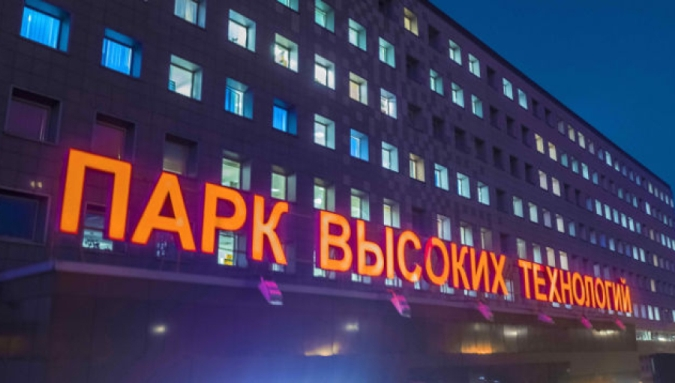

Belarus High Technologies Park in Minsk: Will the last person leaving please switch off the lights?
In the last part we saw how the Belarus IT sector came to play a significant role in the events surrounding the disputed Presidential election of 2020.
"It seemed that the high-tech sector which was supposed to lead the country into the future would be the first and most prominent victim of Lukashenko’s desperate attempt to cling on to power."By the end of August 2020, the news outlet devby.io, was reporting that 12 Belarusian IT companies were already in the process of relocating their entire operations to another country; some 59 companies had moved part of their staff out of Belarus, and another 112 companies had started looking at options to relocate.
From exile in the Ukraine, Valery Tsepkalo, the founder of the Belarus High Technologies Park, gave an ominous prediction for the future of the industry: “If the current state of affairs persists, there will be no trust on the parts of the customers and investors.”
In a similar vein, external observers predicted that Belarus was about to turn from "an oasis of opportunities" for foreign investors into "a no-go zone too dangerous to invest in". It seemed that the high-tech sector which was supposed to lead the country into the future would be the first and most prominent victim of Lukashenko’s desperate attempt to cling on to power.
By October 2020, various media channels were reporting on "an exodus of workers from Belarus’ flourishing IT sector". Many tech companies started to transfer employees abroad or sought to relocate completely, saying that the post-election crackdown made employees feel unsafe and that Internet blackouts by the authorities disrupted business.
Meanwhile, neighbouring countries in the region - from the Baltics to Ukraine - were keen to roll out the welcome mat and did their best to encourage companies to relocate with fast-track immigration procedures, tax breaks and assistance with finding office space.
"...official statements like this steered clear of the elephant in the room, namely the risk that IT companies which chose to remain in Belarus would be subjected to increased political "oversight" by the regime."According to Ukraine’s Ministry for Digital Transformation, some 2,000 IT workers moved from Belarus to Ukraine during the period between August and October 2020. In April 2021, it was reported that in Poland a government-sponsored program to assist relocating IT specialists had led to 790 Belarusians obtaining visas.
In response to questions from foreign media, the official Belarus response was to play down the impact of this exodus. According to an official statement issued by the HTP in October 2020: “High-Tech Park has held a thorough analysis of the real situation, including consultations with CEOs and key investors. It is clear that most IT-related businessmen are willing to keep working in Belarus as before."
However, official statements like this steered clear of the elephant in the room, namely the risk that IT companies which chose to remain in Belarus would be subjected to increased political "oversight" by the regime.
It's worth recalling that back in December 2017 when he was issuing the decree "On the Development of Digital Economy" Lukashenko warned the entrepreneurs tasked with transforming the Belarusian economy that “if something good comes out - that’s a plus, if it’s a minus - I know who to hold accountable.”

The relationship between the autocrat Lukashenko and "his" hi-tech incubator in Minsk seems to have become rather strained following the events of 2020: “I nurtured these tech companies and supported self-employed entrepreneurship. What made them take to the streets?”
“IT people, self-employed entrepreneurs... I still don't know what to do with them. How could it end up this way? I nurtured these tech companies and supported self-employed entrepreneurship. What made them take to the streets?”
"The implications of these developments for the long-term future of the HTP remain uncertain but one thing is clear: the long era of "peaceful coexistence" between the Belarus IT sector and the Lukashenko regime has come to an end."Lukashenko admitted that the HTP had provided a strong impetus to the development of the Belarus IT sector. However, he said that he was beginning to wonder whether the project was doing more good or harm to the country. Amongst other things, he stated that perhaps the time had come to put Belarusian IT specialists working at the HTP on an equal footing with "those who work at enterprises and in organizations of the National Academy of Sciences".
He stressed that he had not yet made any decisions in this regard and had not issued any instructions: "I need time to understand the processes that are taking place in the High Tech Park. We will not act rashly or violate the law."
The implications of these developments for the long-term future of the HTP remain uncertain but one thing is clear: the long era of "peaceful coexistence" between the Belarus IT sector and the Lukashenko regime has come to an end.
"Assuming that Lukashenko remains in power, companies operating out of the HPT in Minsk are likely to be subjected to an increasing degree of political "oversight"."Assuming that Lukashenko remains in power, companies operating out of the HPT in Minsk are likely to be subjected to an increasing degree of political "oversight". In this regard, it is worth noting that a new decree setting up a "state administration agency in the sphere of digital development and informatization" recently entered into force.
Lukashenko has also announced plans to hold a meeting with representatives of the IT-sector in order to review the situation and to discuss reports of a "brain-drain" at the HPT:
"Some IT specialists are leaving the country and their number may be big. We need to look at the matter from the security point of view, how dangerous it is for Belarus. We also need to look into the IT technology, IT parks and IT specialists so as to ensure a level playing field for everyone. The time has come to address these issues."
"We have spent 20 years building up our reputation, producing white label products and software. Now, [the country’s reputation] is wiped out. There are days with no Internet. You never know when a key person will be arrested.”
“Pretty much everyone is doing it [i.e. moving operations out of Belarus]. Most Belarusian founders with a brain and a heart don’t support the movement into an absolute dictatorship and what’s happening in Belarus, the terror. Because every week, there’s another atrocity, another move toward, like, North Korea.”
"In the remaining parts of the series, the focus will return to SaM and we will examine the ambivalent position of the company's management towards the Lukashenko regime."Although, the company's website boasts of "delivery centers" located in the Lithuanian capital Vilnius and in the Ukrainian city of Dnipro, SaM's main "delivery center" is still located at 15 Filimonova Street in Minsk.
In the remaining parts of the series, the focus will return to SaM and we will examine the ambivalent position of the company's management towards the Lukashenko regime. ⬆